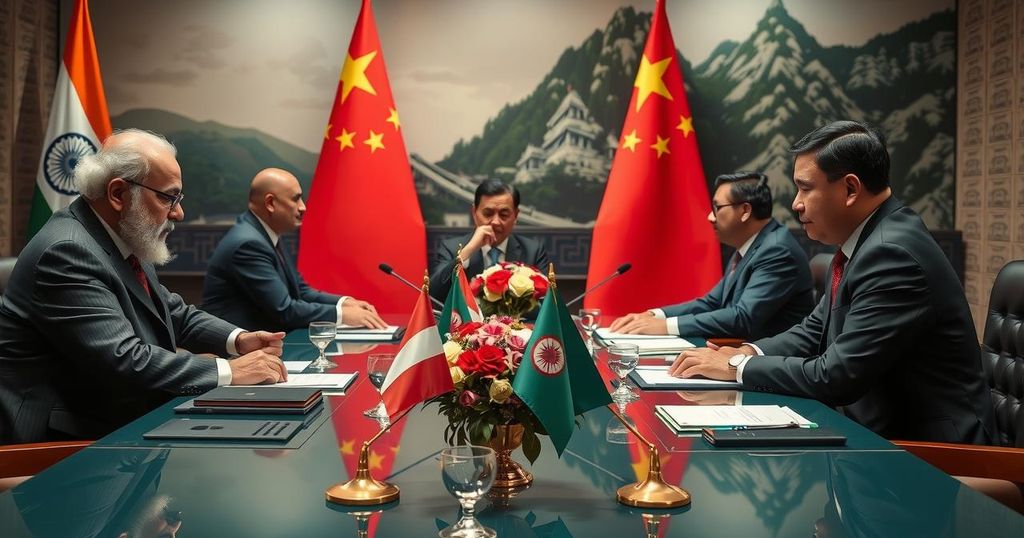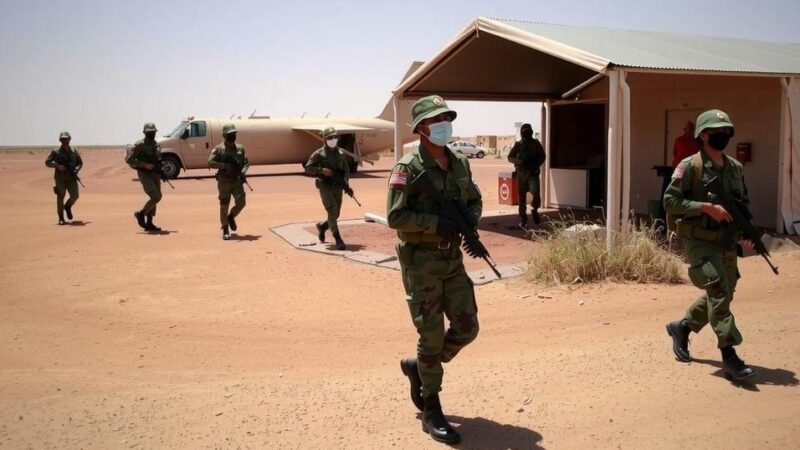Ajit Doval and Wang Yi held talks aimed at restoring India-China relations and managing peace along the LAC, following a long period of strained ties due to military confrontations. The discussions reflect a positive shift post recent disengagement agreements, highlighting the importance of dialogue in addressing ongoing tensions.
On Wednesday, Indian National Security Advisor Ajit Doval and Chinese Foreign Minister Wang Yi congregated in Beijing for discussions aimed at fostering peace along the Line of Actual Control (LAC) and restoring bilateral relations that have been strained since the military standoff in eastern Ladakh. Doval, leading the Indian delegation, attended this significant 23rd round of Special Representatives’ talks after a five-year hiatus, the previous meeting occurring in 2019. The discussions commenced at 10 AM local time and were anticipated to cover various topics aimed at rebuilding ties subsequent to an agreement reached on disengagement and patrolling in the region on October 21, 2023.
Prior to the talks, China’s Foreign Ministry expressed positive sentiments, indicating the nation’s readiness to collaborate with India in fulfilling commitments aligned with the understanding established between Prime Minister Narendra Modi and President Xi Jinping during their recent meeting in Russia. Chinese Foreign Ministry spokesman Lin Jian affirmed the need for both nations to respect each other’s core interests and to enhance mutual trust via dialogue, ultimately aiming for a stable and healthy relationship.
The agenda for the Special Representatives included deliberations on maintaining peace in border areas and devising a fair resolution to the ongoing boundary issues, as agreed upon in the Kazan meeting. The military confrontation that began in May 2020 and escalated with the fatal clash in Galwan Valley has significantly impacted relations, with communication, aside from trade, being nearly frozen until recent diplomatic efforts.
The current meeting carries significant weight, representing the first structured engagement aimed at mending relations following years of tension. Despite the SR mechanism’s previous 22 meetings since its formation in 2003 not providing resolution to the boundary dispute, both sides view it as a valuable tool for managing ongoing tensions. With the completion of disengagement at crucial points in the border areas, there is cautious optimism regarding future dialogue and cooperation between India and China.
The India-China border dispute spans approximately 3,488 kilometers and has been a source of prolonged tension between the two nations since their independence. The Special Representatives mechanism was established in 2003 as a comprehensive approach to address this intricate dispute. Notably, relations deteriorated significantly following skirmishes in 2020, notably at Galwan Valley where military confrontations resulted in casualties. Ensuing months saw a near total halt in diplomatic interactions, with engagement primarily focusing around trade. The recent resumption of formal talks marks a pivotal moment aimed at re-establishing trust and dialogue at high governmental levels.
In conclusion, the recent talks between Ajit Doval and Wang Yi symbolize a critical step towards improving strained India-China relations. Following a prolonged period of tension, both nations are now striving to adhere to previously established agreements, emphasizing the necessity for dialogue, respect for each other’s interests, and a commitment to restoring stability along their borders. The positive sentiments expressed prior to the talks foster hope for enhanced cooperation moving forward.
Original Source: www.ndtv.com







